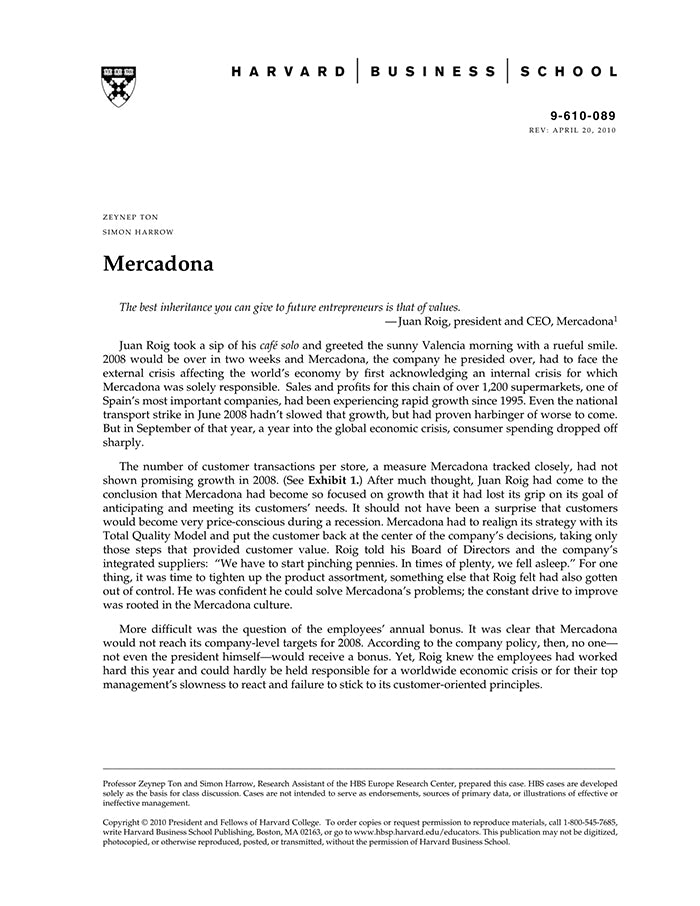Mercadona
受取状況を読み込めませんでした
This case presents the predicament of a company trying to do right by its customers and its employees as the economic crisis of 2008 hits home. Fifteen years earlier, this Spanish supermarket chain had adopted its own version of total quality management, called the Total Quality Model, switching from the industry's traditional high-low pricing to "always low prices" and continuous improvement. These changes called for a well-trained, empowered, and enthusiastically engaged workforce dedicated to providing the best products and service to their customers, who were always and seriously referred to as "the Bosses." The Total Quality Model had been a success in terms of company growth and profitability, sustained by the success of Mercadona's unusually high investment in employee training and satisfaction. Nevertheless, when sales growth slowed down in 2008, CEO Juan Roig concluded that Mercadona had let its customers down by not keeping prices low enough for such hard times. Mercadona set about lowering its prices, reducing product variety, and lowering its financial targets for 2009. Of the 9,200 SKUs in an average store, the company decided to eliminate 1,000. But Roig still had to decide what to do about employee bonuses. Since Mercadona did not meet its 2008 targets, the company policy was that no one-not even top management-would get a bonus. But Roig knew that his employees worked hard and well in 2008 and could not be held totally responsible for the downturn or for management's failure to react quickly enough.
【書誌情報】
ページ数:25ページ
サイズ:A4
商品番号:HBSP-610089
発行日:2010/4/14
登録日:2010/6/24


